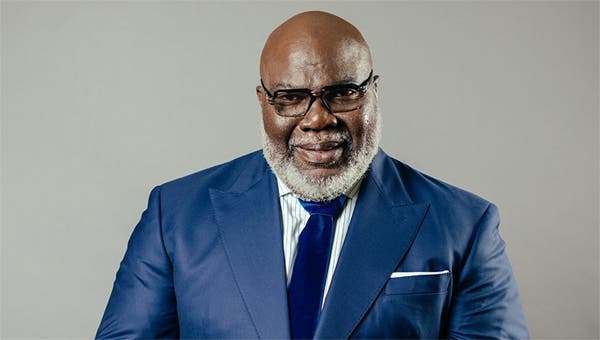
“My ancestors were Igbos-Nigerian”, TD Jakes reveals
Popular cleric, Thomas D. Jakes, bishop of Potter’s House, a mega church in the United States, has narrated how he traced his roots to Nigeria, where he has discovered that his “ancestors were Igbos.”
Jake revealed this in an interview with BBC Igbo.
Jakes also opened up on his feelings since after his DNA test traced his ancestry to the Igbo tribe.
“It all started when Henry Lewis Gates, who was at Harvard, decided to this DNA testing to see where my ancestry came from. It was me, it was Oprah Winfrey. It was Quincy Jones and others,” he said.
“Mine was traced back to West Africa, to Nigeria and particularly Igbo. My ancestors were Igbos. It’s indescribable. It gives something that we the African-Americans don’t have, which is roots.
“It gave me an understanding of my roots. It was interesting to see how similar my personality is to how Igbo people are described. They’re described as hardworking, industrious and innovative.
“They have strong business acumen. I deeply relate to that. It explained me to me. It’s odd that I was never born there, yet, see so many traces. I’ve always had a strong business acumen.
“I’ve been aggressive in business. Although I’ve been known for the faith aspect, I have several companies and I’ve owned my own resources. My children all started studying ancestry about Igbos, and even more about Africa. I’ll like to reconnect with our brothers and sisters over there.”
Revealing that Nigerian cuisines made his head sweat, Jakes opened up that he eats fufu and Jollof rice in Nigeria
“When I’m in Nigeria, I experience the food. I eat the fufu and the jollof rice. I have those kinds of experience. I’ve had more than I can name. I go to Accra in Ghana and Lagos quite often,” he continued.
“What I know about the food is that it’s almost always hot and spicy. I ate it before but the food over there is so hot it makes your head sweat. And I like it.
“One of the tragedies of slave trade is not just that we were taken from our home, culture, people, and food. We lost our history. African-American history is taught over here from boat landings.
“And we assumed a name that does not define us. Jakes is a German name that only signified who owned my ancestors. To reach beyond the boats an chains to touch a soil where I’m from.
“To understand that my ancestors were something before they were a slave is extremely gratifying. It really confirms why I have such fascination about the continent of Africa.
Nigeria still grappling with the after-effects of colonialism, says Jakes
On what’s in store for Africa regarding international trade and globalisation, the cleric said he hopes the continent’s dealings with world powers doesn’t wipe out what is left of its culture and history.
“Colonialism affected you as slavery did us. So we’re still trying to untangle ourselves from the after-effects of some of the atrocities that did not dignify us,” he said.
“They were more interested in the land than the people. So they divided up the land at the expense of the people. And I think we’re still trying to overcome that. I say ‘we’ because we were there too.
“I deeply respect and understand that there’s a passion amongst may Igbos to recede from Nigeria to develop their own influence and culture. We’re grappling with the after-effects of colonialism.
“We need to re-understand ourselves beyond white supremacy and reconnect. We can’t become so tribal that we do it to disintegrate opportunities that come through trade and interconnectivity.
“There’s huge opportunity for Africans and African-Americans to come together for business and prosperity. The more we explore each other, the better for our civilization.
“My hope for Igbos; Africa is that, as superpowers come in with technology, culture isn’t snuffed out. And that they understand that ownership is critical in the deals they make with the world.”

